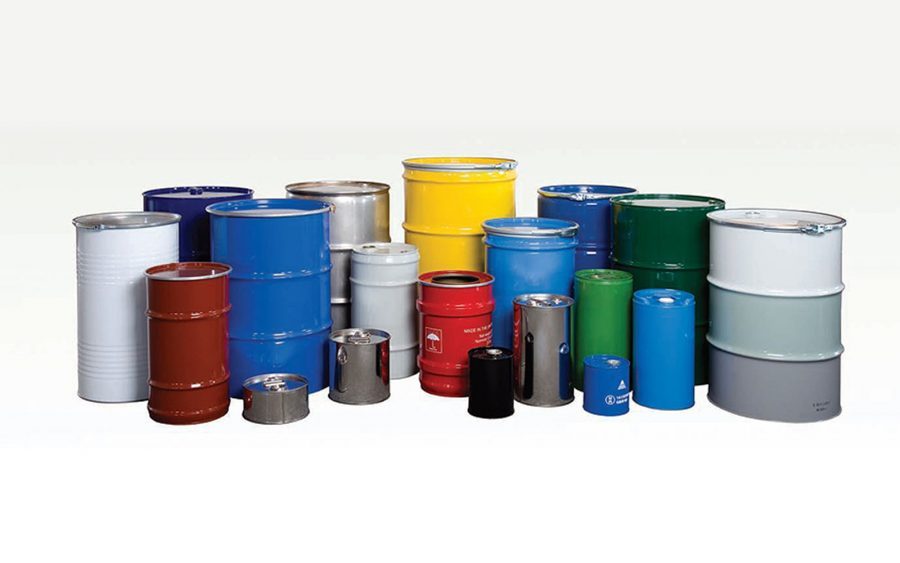Welcome to Nairametrics’ weekly company profile, a column solely dedicated to spotlighting some of the little-known corporates whose shares are listed on the Nigerian Stock Exchange (NSE). This week, our focus is on Greif Nigeria Plc, a company which operates in the industrial goods sector of the economy.
Greif Nigeria Plc recently released its third quarter 2018 financial result which, unfortunately, shows an abysmal performance. Both revenue and profit declined, continuing a pattern this year whereby it struggles to grow.
Read on for all the useful information about the company; its long history in the country, business model, the markets it serves, financial performance, and more on the factor(s) behind its poor performance so far in 2018.
About Greif Nigeria Plc’s long history in Nigeria
Like most companies, Greif Nigeria Plc initially started out as a limited liability company. Incorporated in 1940 under the company Ordinance (CAP 38), it has existed for 78 years, making drums for industrial packaging. But a lot has changed about the company during the time it has existed. First of all, its initial name (Metal Containers of West Africa Limited) was changed to Van Leer Containers Nigeria Limited in 1969.
The changes in brand identity continued. In line with the Companies and Allied Matters Act (CAP 20), the company’s name changed to Van Leer Nigeria Plc in 2004. The corporate identity changes did not stop until the company eventually became Greif Nigeria Plc, later in 2004.
The company is based in Lagos, where it continues to manufacture and distribute steel and plastic drums. These drums are used for the packaging of liquid raw materials such as crude oil, chemicals, etc. It is a subsidiary of Greif International Holding B.V, a company which has been operating in the global product packaging industry for over 140 years. The parent company is listed on the New York Stock Exchange. It currently operates in over 40 countries around the world.
The company’s target market
Greif Nigeria Plc targets Nigerian companies that require steel drums to package products for shipping. For this reason, the company’s factories are strategically located in three industrial hubs namely Apapa in Lagos, Koko in Delta State and Kaduna, the capital of Kaduna State. A typical example of Greif’s target market is Chellarams Plc, a conglomerate which, among other things, manufactures and distributes chemical (ChellChem).
A look at the company’s segments
Note that Greif Nigeria Plc generates 90% of its revenue from operations in Apapa, Lagos. This is understandable, considering the fact that Lagos is the hub of manufacturing and Apapa, the shipping hub of Nigeria. Unfortunately, the company’s other factories do not generate as much revenue. For instance, while the Kaduna plant generated just 10% of revenue in the first quarter of 2018, the Delta State operation generated 0% of the company’s total revenue during the period.
Based on this lack of performance, the Board decided in May 2018 to shut down production in those states. This would enable the company to “embark on Apapa factory site improvement, capital expenditure and overhaul to meet minimum.” as released in a statement.
Here are some key members of its Board of Directors
- Mr Olukunle Adebayo Obadina is the Managing Director. He holds 72, 333 units of shares in the company.
- Mr Adedayo Abiodun Olowoniyi serves as the company’s Chairman. No shareholdings in the company are listed in his name, based on information obtained from the company’s recent financial reports.
- Mr Gaius Adetayo Omotayo recently retired as an Executive Director. He owns 115, 133 units of shares in the company.
The company’s substantial shareholding structure
Greif Nigeria Plc’s ownership structure is in the following order:
- Greif International Holding B.V: 51%
- The Van Leer Nigerian Education Trust: 23%
- Nigerian shareholders: 26%.
A brief look at its competition
In Nigeria today, there are several players in the packaging industry. But only two are closely related to Greif Nigeria Plc in terms of business scope. They are Nampak Nigeria Plc and Avon Crowncaps. Two companies that are equally involved in the production of different kinds of containers. Once listed on the Nigerian Stock Exchange, they have since delisted but continue to be major players in the market.
About the company’s financial performance
Last week, it released its third quarter 2018 result. Revenue from continuing operations declined by 31% year on year, with N405 million reported for the period ended July 2018, as against N591 million reported in July 2017. Similarly, the company recorded a 156% loss for the period, having reported N24.8 million as against N44.3 million in July 2017.
At this rate of underperformance, it would be impossible for the company’s full-year 2018 financial report to surpass that of 2017. As a matter of fact, there is a strong possibility that it will run at a loss by the end of the financial year unless drastic action is taken in the next few months.
Way forward…
It is surprising that the company’s operation in Delta State was unable to generate revenue, to the extent that a decision was made to shut it down. That region is rife with crude oil exploratory activities, with many oil companies that ship thousands of barrels of oil. The fact that Greif Nigeria could not take advantage of these opportunities with their steel drums, makes for a curious case. But the good thing is that the opportunity exists for them to take advantage of it.
Moving on, the company should consider diversifying its operations into more areas of need. It should learn from its parent company which is involved in all round product packaging, including detergents & surfactants, paints and coatings, lubricants, food and beverages, pharmaceutical and personal care, etc.
